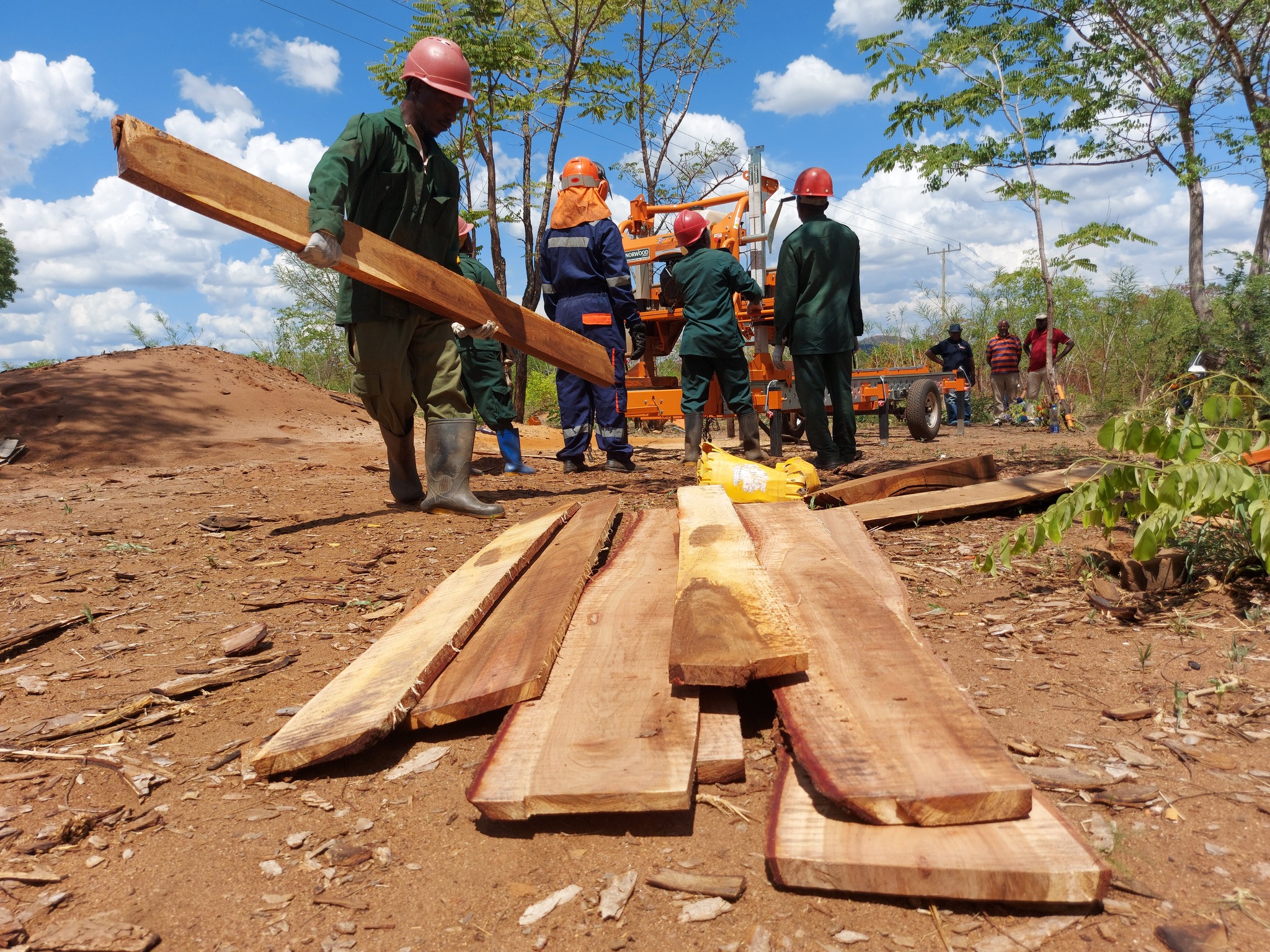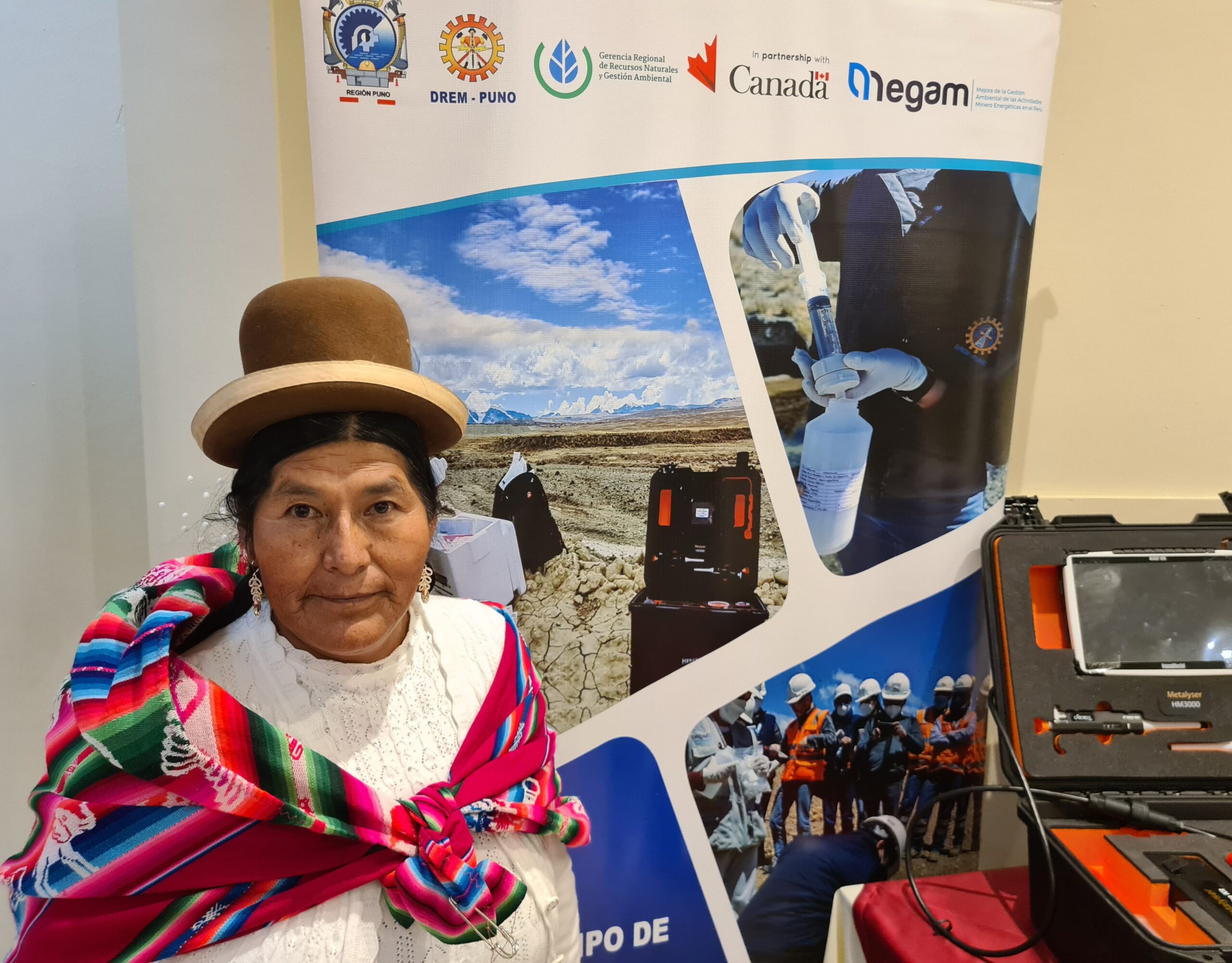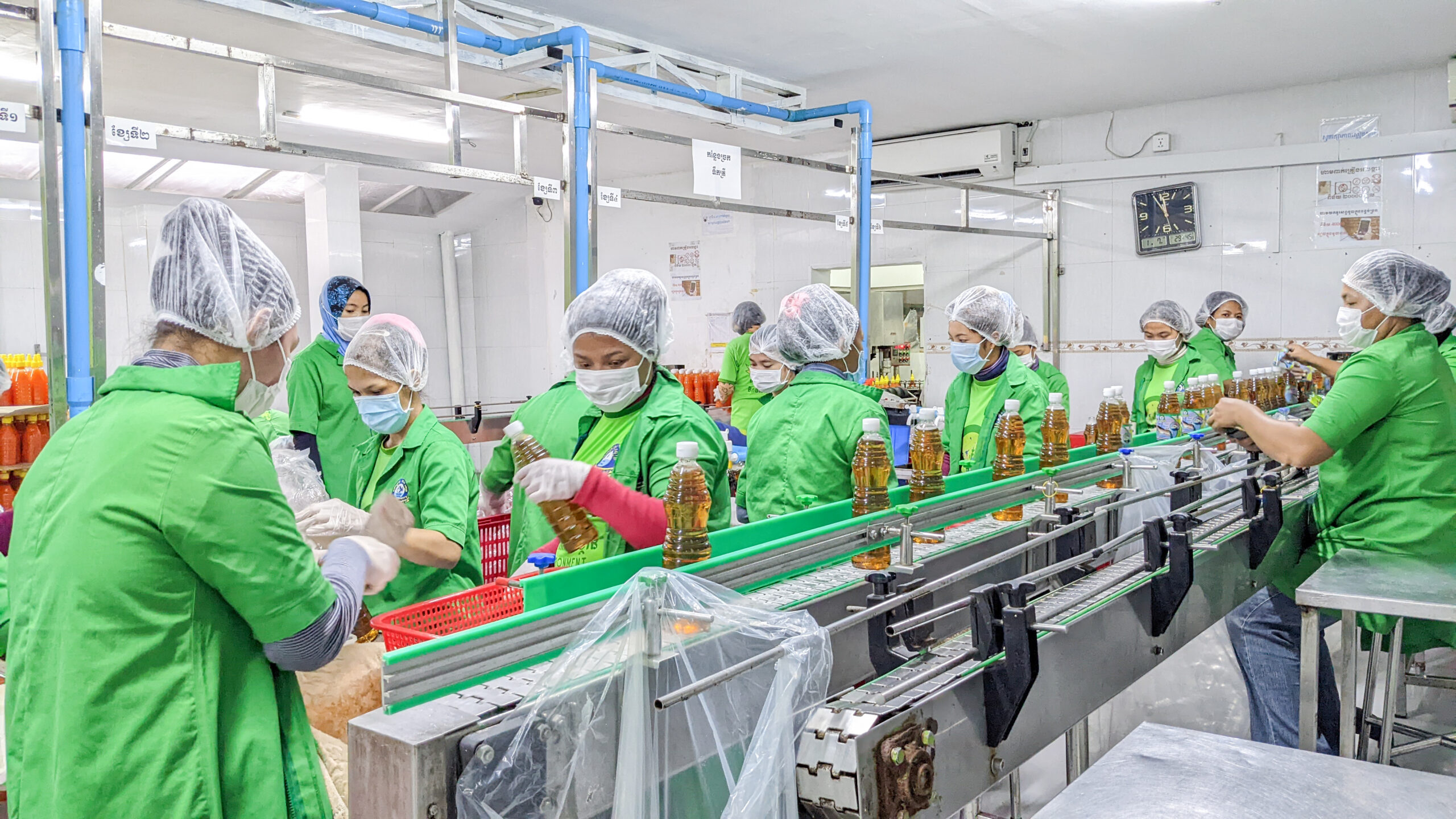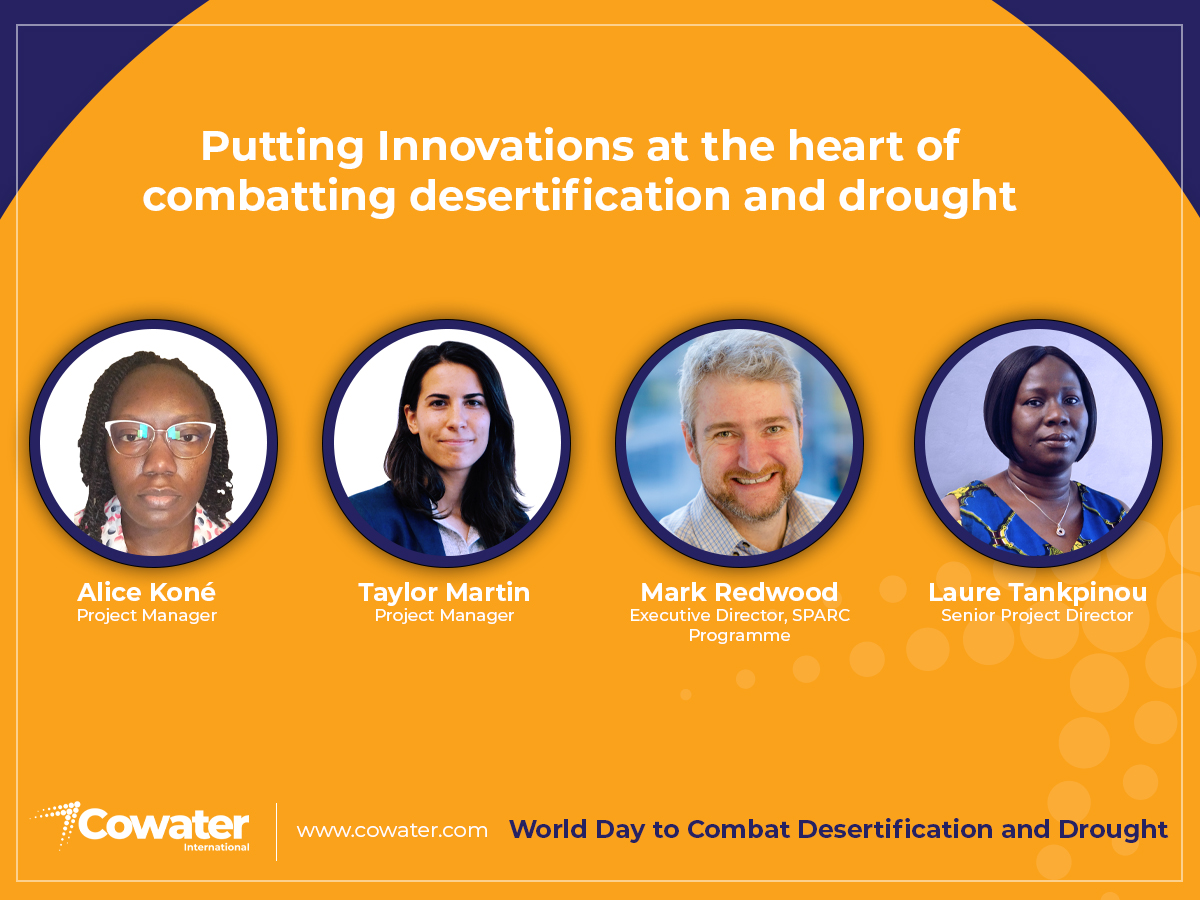
Putting Innovations at the Heart of Combatting Desertification and Drought
Authors: Alice Koné, Taylor Martin, Mark Redwood, Laure Tankpinou
Most of Sub-Saharan Africa is getting drier. The Horn of Africa, and in particular parts of Somalia, Djibouti, Ethiopia, and Kenya, are experiencing one of the worst drought emergencies in decades. As a result, as many as 13 million people are experiencing acute food and water shortages and a projected 25 million will face similar conditions by mid-2022 (UNEP, 2022). This is the third consecutive year of drought, and the peril of lives lost and human suffering is becoming starkly apparent as the situation rapidly deteriorates into a humanitarian crisis.
In the drylands of East and West Africa, crises undermine rural livelihoods and damage agriculture, leading to food insecurity and malnutrition. Climate change and land degradation compound desertification in Sub-Saharan Africa reducing the amount of arable land for cultivation. Current trends suggest that by 2050 more than half of the cultivated land in Africa will be unusable. This could force an estimated 17-40 million people to migrate due to loss of livelihoods.
The latest Intergovernmental Panel on Climate Change report (2021) projects that biodiversity loss, water shortages, reduced food production, and loss of lives stemming from anthropogenic climate change will become more widespread and severe. Other current global challenges, including the war in Ukraine and the risks of a global recession, are diverting policy and public attention from the devastating impacts of climate change on the most vulnerable communities of Africa.
On this World Day to Combat Desertification and Drought 2022, we take a moment to reflect on some solutions that Cowater International is working on to support people on the frontlines of climate change.
Supporting communities in the Konni and Gaya regions of Niger
In Niger, as in most Sahelian countries, more than 80 percent of the population is dependent on agriculture and livestock. These livelihoods are seriously affected by drought and soil degradation, which increase food insecurity in the country. In alignment with this year’s theme for the World Day to Combat Desertification and Drought “Rising up from drought together”, and with support from the Millennium Challenge Corporation (MCC), Cowater International, through the Agriculture Support Services project, is building the capacity of women and men producers, youth, local cooperatives, extension officers and authorities to protect and restore degraded land – pastures, slopes, rangelands and irrigation areas. The goal is to help agricultural producers integrate environmental considerations in local development plans and land planning activities. As a result, 12 land protection techniques and a set of training modules have been developed and a total of 32 local representatives in two regions of Niger – Konni and Gaya – were trained on how to conduct environmental assessments; manage soil fertility and crop fertilization; collect and conserve rainwater; and promote agroforestry. Moreover, in partnership with local enterprises, the project is supporting the local agricultural producers’ cooperative of Konni in the use of drought resistant seeds to improve crop yields and increase the resilience of local food systems.
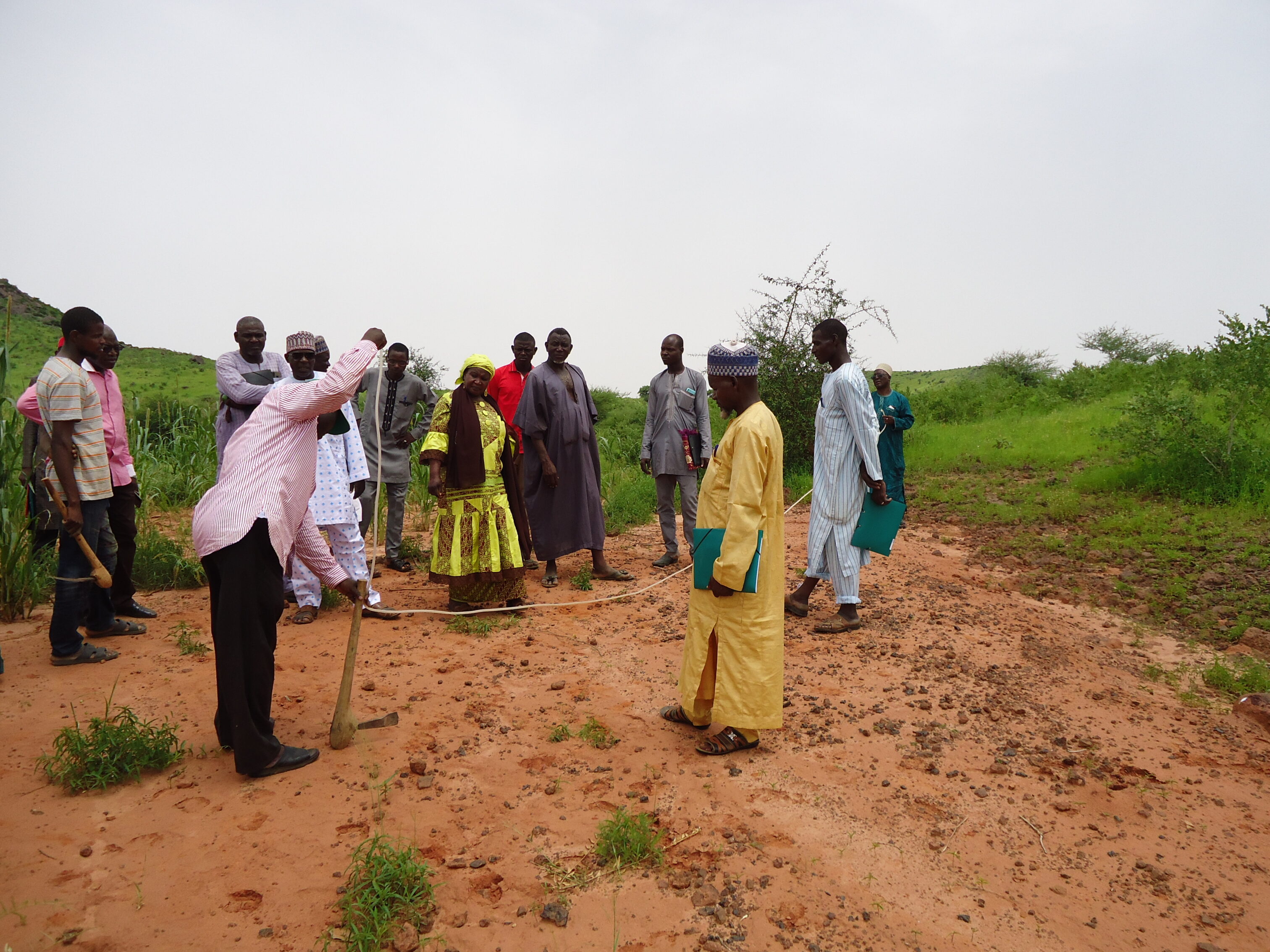
Agricultural Support Services Project, Niger
SPARC: Innovative solutions for dryland resilience and ecosystem restoration
Pastoralists, agro-pastoralists and farmers living in the drylands play an instrumental role in the fight against desertification and drought. Programs and policies that aim to build their resilience and help them withstand and recover from shocks in the context of climate change are critical. Cowater International’s Supporting Pastoralism and Agriculture in Recurrent and Protracted Crises (SPARC) programme has set up a Research and Innovation Facility to fill important knowledge gaps in how to scale innovative solutions to increase the resilience of dryland communities to shocks, including drought. Existing innovations – both processes and technologies – have a lot to offer to address drivers of ecosystem degradation, restore grasslands and rangelands, and support pastoralists and farmers in the face of shocks. These solutions range from use of mobile phone technology to improve pasture management such as Afriscout in Kenya and Ethiopia; farmer managed natural regeneration techniques and livestock management practices for grassland restoration in Niger; and holistic farming approaches to combat desertification.
Innovation is also needed to support dryland communities to withstand and recover from the devastating impacts of drought. One promising option is the use of forecast-based financial services, such as Index-Based Livestock Insurance (IBLI), which has the potential to protect millions of vulnerable herders and livestock keepers in the face of increasing climate-related losses as a result of severe dry spells. IBLI does this by compensating livestock keepers through insurance pay-outs when rainfall and forage conditions – tracked via satellite data over a predetermined area – exceed thresholds that predict livestock deaths and loss. IBLI is available to livestock keepers through private insurance providers, as well as government supported safety net programmes in Kenya. Given that there are an estimated 50 million pastoralists in Sub-Saharan Africa, there is a significant opportunity for scaling IBLI to support agro-pastoralists and pastoralists facing drought across the continent.
The path to long-term resilience
Desertification and drought will continue to be a challenge to food security and poverty in an increasingly warming world.
First, development actors must support locally-led initiatives that build on a strong understanding of the local context, existing community structures and social capital. Studies that build on local knowledge and how communities are coping and adapting to a myriad of challenges in their lives, such as through SPARC’s longitudinal research in Nigeria, Sudan, and Somalia, are essential for designing interventions that build resilience.
Second, there are numerous innovative solutions that have the potential to improve the resilience of pastoralists and agro-pastoralists living in the drylands. These innovations need to be leveraged, scaled and adapted to specific contexts. Meaningful and scalable innovations targeting farmers and pastoralists exist in many countries, but their potential needs to be fully unlocked. More can be done to bring innovative solutions to scale through evidence and financing and sharing knowledge across borders.
Finally, anticipatory action is critical. Shifting mindsets from reaction to prevention can better assist people ahead of a crisis that we expect to occur through seasonal forecasts and early warning systems. In fact, this shift from “reactive” and “crisis-based” approaches to “proactive” and “risk-based” management is essential to building the resilience of dryland communities and combatting desertification and drought in the long-term.
Related Content
Tanzanian–Finnish collaboration supporting a ‘use it or lose it’ approach in Tanzanian Community Based Forest Management
The Governments of Tanzania and Finland have worked together in partnership for decades in the forestry sector in Tanzania. Since 2018, through the Forestry and Value Chains Development Programme (FORVAC), […]
Community, Capacity and Coordination: why environmental management matters for sustainable development in Peru
Author: Victor Neagu, Director of Communications and Marketing, Cowater International I recently travelled to Peru for a series of closing events linked to the MEGAM Project. MEGAM is the Spanish […]
Cambodia and Australia Launch Food Innovation Partnership to Support Agri-food SMEs
Today, Cambodia and Australia launched a new Food Innovation Partnership to support Cambodia’s agri-food small and medium-sized enterprises (SMEs) develop new products, meet food safety standards and improve their market […]




